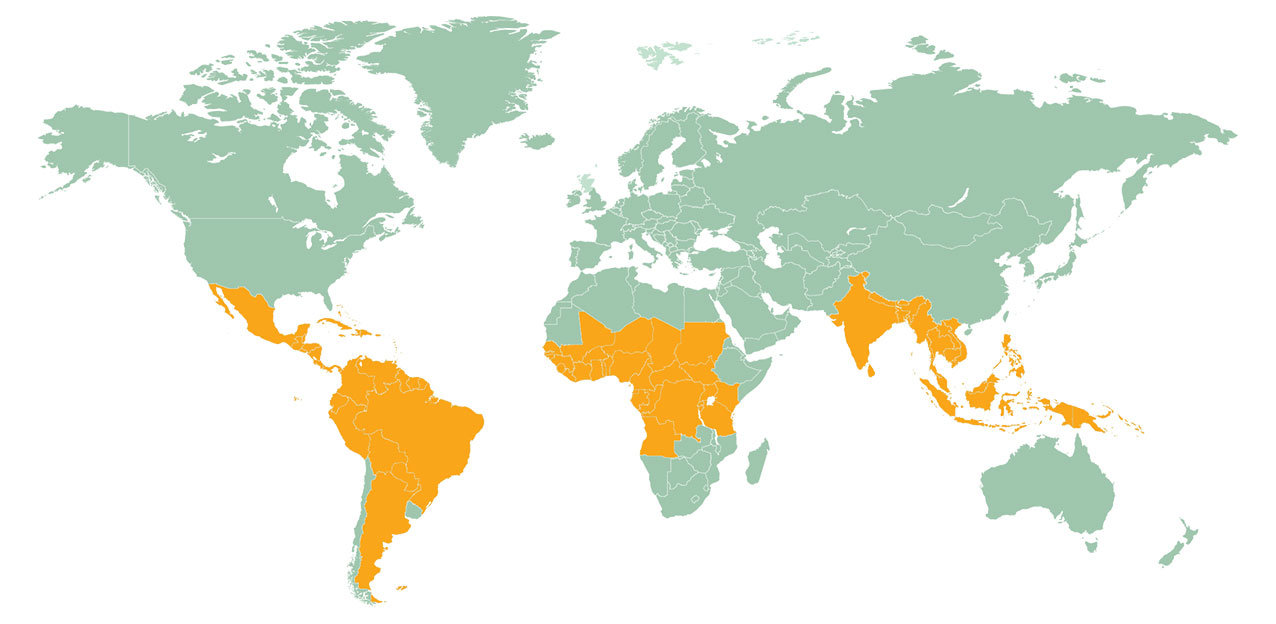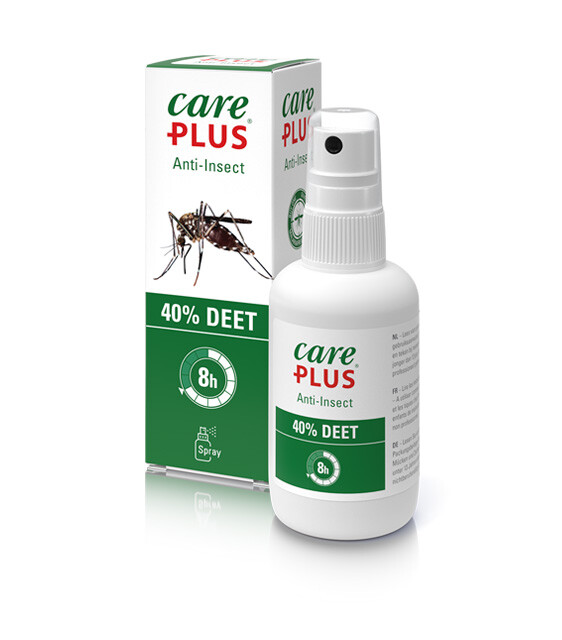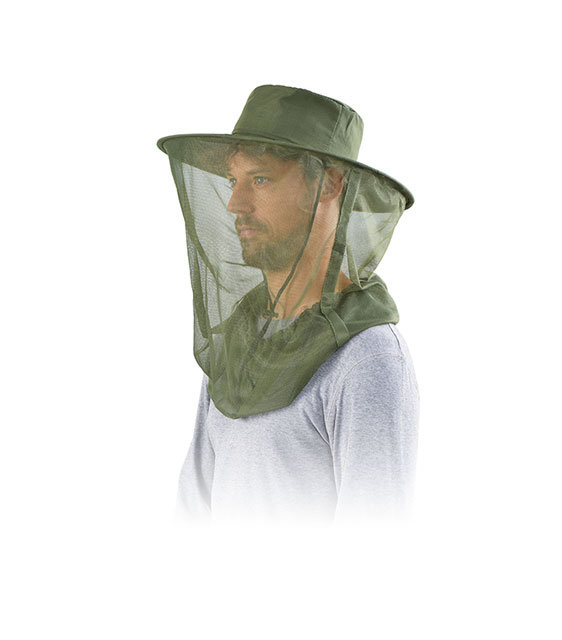Zika virus
The zika virus is spread by the yellow fever mosquito or dengue mosquito. This mosquito is not native to the Netherlands. The disease (zika virus) is usually quite mild. Most people do not have any symptoms. However, there is scientific proof that infection with the virus can be harmful to the unborn child during pregnancy.

The graphic representation on this map is based on data from 2017.
What is the zika virus?
The zika virus is a virus that causes the infectious disease known as zika fever. Only 1 in 5 people infected with the virus show symptoms. The symptoms are usually quite mild. Scientists agree that infection with the zika virus can be harmful to the unborn child. It can cause neurological defects like microcephaly. Infection can also lead to Guillain-Barré syndrome. How often this occurs, is still unknown.
Symptoms of zika virus
Only 1 in 5 people infected with the virus show symptoms after infection with the zika virus. Symptoms of zika fever usually show 3 to 12 days after being bitten by an infected mosquito. Most people recover within a week without serious problems.
Possible symptoms are:
- Acute (moderate) fever
- Non-purulent infection of the eye
- Muscle and joint pain (especially in hands and feet, sometimes swelling of the face)
- Skin rash (usually starting in the face and spreading to the rest of the body)
- Less often: headache, lack of appetite, vomiting, diarrhoea and stomach ache
Complications of zika virus
The following complications have been described:
There is a link between abnormalities in the unborn child and infection with the zika virus during pregnancy, also known as congenital zika virus syndrome. It describes, among other things, a brain disorder (microcephaly) in the unborn child.
The Guillain-Barré syndrome. It is not yet known how often it occurs after a zika virus infection, but it seems to be quite rare.
Infection and prevention of zika virus
The Aedes mosquito, unlike other species of mosquito, is active during the day, especially in the early morning and late afternoon. Wearing clothes that cover the skin and applying a mosquito repellent like Care Plus Anti-Insect on exposed skin, reduce the risk of infection.
It is important to take careful mosquito repelling measures during the day and in the early evening in areas where the zika virus occurs.
- Cover your skin with clothes (long sleeves, long trousers).
- Apply Anti-Insect with DEET to exposed skin. Children under 2 and pregnant women can only use products with a maximum of 30% DEET.
- Install insect screens on window and door frames.
- Always sleep under an (impregnated) mosquito net or in a mosquito-free space.
Travellers are a risk group for contracting the zika virus infection. They are advised to seek advice regarding their intended journey from a travel clinic or the treating physician prior to departure. This applies in particular to pregnant women.
Infection with zika virus through sexual transmission
The zika virus can be sexually transmitted because the virus has been found in sperm. However, the risk of getting infected this way is very small. To prevent this infection, men who have been in countries where the zika virus occurs are advised to use a condom for two months. Certainly for pregnant women



